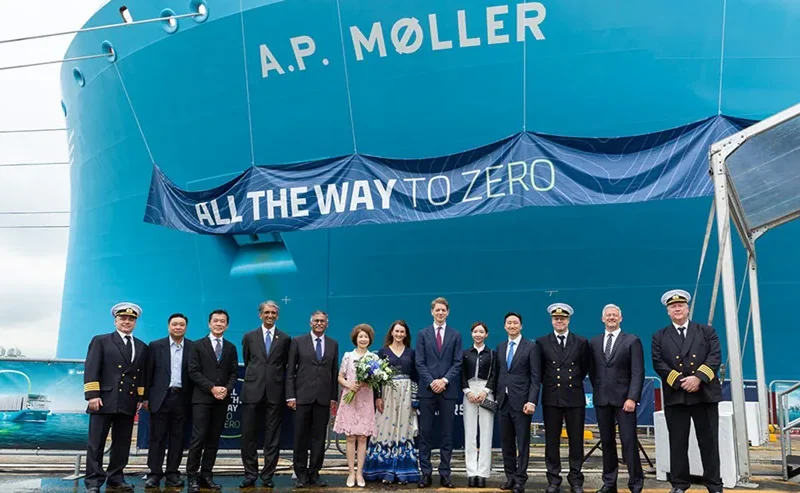A.P. Moller-Maersk, the world’s largest container shipping company, aims for alternative fuels to comprise up to 20% of its marine fuel consumption by 2030, as part of its commitment to achieving net-zero emissions by 2040. The company currently consumes 10 to 11 million metric tons of fuel oil equivalent annually, with alternative fuels accounting for just 3% of its usage in 2022, said Emma Mazhari, Vice President and Head of Energy Markets, during a press briefing on Thursday.
“We would probably look at 15% to 20% green or renewable fuels by 2030,” Mazhari noted, emphasising that the target depends on the success of Maersk’s energy efficiency initiatives. Key alternative fuels include biodiesel, green methanol, and bio-methane, the latter of which is seeing increased production in Europe and North America for use in LNG-powered ships.
To advance its sustainability efforts, Maersk launched its latest dual-fuel methanol container vessel, the A.P. Moller, which is part of a fleet of 18 such ships set for delivery this year and next. The Danish-flagged vessel, filled with 500 metric tons of green methanol at Hyundai Heavy Industries’ shipyard in Ulsan, South Korea, has the capacity to carry 16,000 cubic meters of methanol, sufficient for round trips between Asia and Europe.
Maersk has secured a contract with China’s LONGi Green Energy Technology for bio-methanol supplies starting in 2026. However, demand for green methanol currently outpaces supply, and methanol-powered ships require nearly double the fuel volume compared to traditional options due to its lower energy intensity.
Ditlev Blicher, Maersk’s President for Asia Pacific, acknowledged that alternative fuels are more than twice as expensive as conventional options. “Like many other green technologies, whether it’s solar panels or EV vehicles, you need scale to make it commercially viable,” he said, adding, “What we need are regulations to raise the price of dirty fuels.”
Maersk is collaborating with the International Maritime Organization (IMO) to establish regulations that could accelerate the transition to cleaner fuels. The IMO’s Marine Environment Protection Committee is set to meet in April to finalise a global framework for reducing greenhouse gas emissions in the maritime industry.
Meanwhile, Maersk also marked the arrival of its latest dual-fuel methanol container vessel, the ‘A.P. Møller’, in Singapore today during its maiden voyage from Asia to Europe. Named in tribute to Arnold Peter Møller, the founder of A.P. Moller – Maersk, this vessel becomes the ninth in Maersk’s fleet equipped to operate on methanol.




















